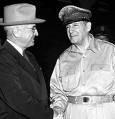03 December 2007
Running Dream

I woke this morning from the running dream. I don't know what your version of it might be.
Mine normally starts in some perfectly ordinary social situation, as something vast begins to unfold. Sometimes it is a natural disaster presaging the release of terrible ogres; sometimes they are from the earth, and sometimes they are from space.
Once there was a great wave that rolled along a coast, sweeping all before it, and with the flood came a sea of adversaries of fantastic shape, parts known and unknown, who are determined to destroy me and the people around me. We are hunted down, in groups and then alone, heart pounding. Cornered at last, sometimes I flail at them, and occasionally land a good one in close combat.
But it does not matter. The Others are omnipotent, and the conclusion is inevitable. My blows do not register, though the motion continues and the scenes roll on of mass destruction of all I hold dear.
At the point of being extinguished I am normally awake again, out of breath from the exertion in the dream. The one commonality is that the dreamscape always includes dread and running, feet bogged in mud or sand and lungs heaving.
They say that everyone has the dream, or a variation of it. It is odd, this dream, because before the knees went, and I could run, I could go for hours. Effortless, free as the wind.
There was no reason for the dream to come last night. It is not a reliable forecast of events in the future, or at least has not been so thus far. Perhaps it is connected to the writers strike, which meant that my usual routine of Sunday night television was disrupted. After live action from the NFL, there was nothing on but more live-action and unscripted awards shows.
I lost interest and went to bed early, the book on the Korean War falling by my side. It is David Halberstrand's last big book, The Coldest Winter.
David helped inform us of where we have come from, describing the rapids down which our American Century has rushed. He was a correspondent in the American War in Vietnam, and he knew the Best and Brightest, as he termed the military and political leadership.
In another book he described the decade of the 1950s, which was a period of social stability lived through the lens of futuristic Googie-architecture and tail-fins, managed by Ike and lived in the shadow of the mushroom cloud.
As a veteran of service in a pre-boom South Korea and one of a small number of visitors to the Hermit Kingdom, I thought I had some insight into the forgotten war there. Truman called it a “police action,” rather than what it was, and most Americans did not want to think of it at all.
My time in Pyongyang was spent purportedly seeking agreement on the search for the remains of Americans who had died on the way back from the approaches to the Yalu River, the border with China. Then, the Red Army on the other side was newly victorious and all the calculations were likewise untested.
I've told you before of one of those surreal moments, standing with an old Marine before a giant illuminated map-board featuring a detailed topographic map of the peninsula that showed the rugged terrain from the Yalu south to Busan. I invited the Marine's attention to training activity near the DMZ, showing its proximity to the invasion axis from Kaesong to Munsan in the South.
The Marine was lost in a reverie, and his gaze was on the north, to the jagged hills around the Chosen Reservoir.
He had been there, he said, and had seen the brown waters of the Yalu with his own eyes.
Reading Halberstrand as my eyes began to close, I was there again, in the red brick former Japanese bath house that served as our headquarters in Seoul, and Halberstrand was murmuring of the shocking misjudgment of MacArthur's GHQ.
Asleep at the switch, again, just as his staff had been in the Philippines a decade before when the Japanese attacked, and then so dreadfully wrong on the intentions of China after the brilliant landing at Inchon and victory seemed at hand.
The confused response in Washington is understandable, though it is appalling that it is the pivot point for all the slaughter that followed. The response to the Korean invasion was predicated on the flawed understanding of the involvement of Uncle Joe Stalin and Great Helmsman Mao. There was a distinction between the struggles that were in progress. George Kennan, the architect of containment against Russia, knew it, and he tried to explain.
But he was on the outs, and his opinions did not matter.
Korea was an invasion, Red Surrogate Kim Il Song versus Blue surrogate, Yale-educated Singman Rhee. There were other wars in progress all across the region, which were struggles against the old empires, with deep popular support. While hands were wrung about “Who lost China?” the Administration wisely kept out of a major land war in the Middle Kingdom.
But the response to Kim's arrogant invasion of the South included the immediate deployment of the 7th Fleet to the Taiwan Strait, and the immediate re-supply of the French forces fighting their doomed Indo-China colonial war.
Bungling and misunderstanding is what brought us to it, and my eyes finally closed and the book fell to my side. The last thing I recall is the description of the terror that swept across the Americans who were overwhelmed by more than a hundred thousand Chinese “volunteers” that the intelligence system would not acknowledge were all around them.
It is not surprising that the running dream came in the night. I did not hear the sound of Chinese bugles, though.
I think it was the dog in #204.
Copyright 2007 Vic Socotra
www.vicsocotra.com
Close Window